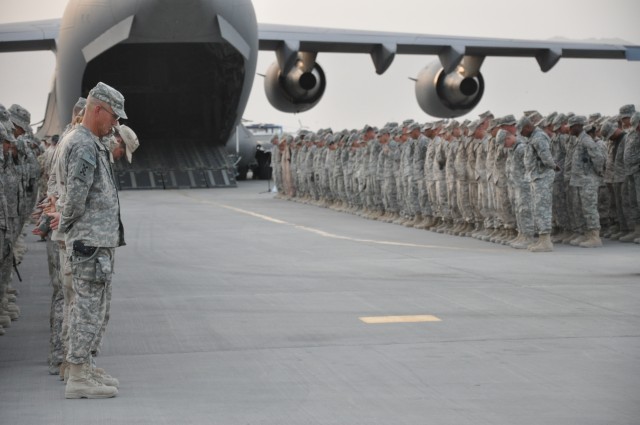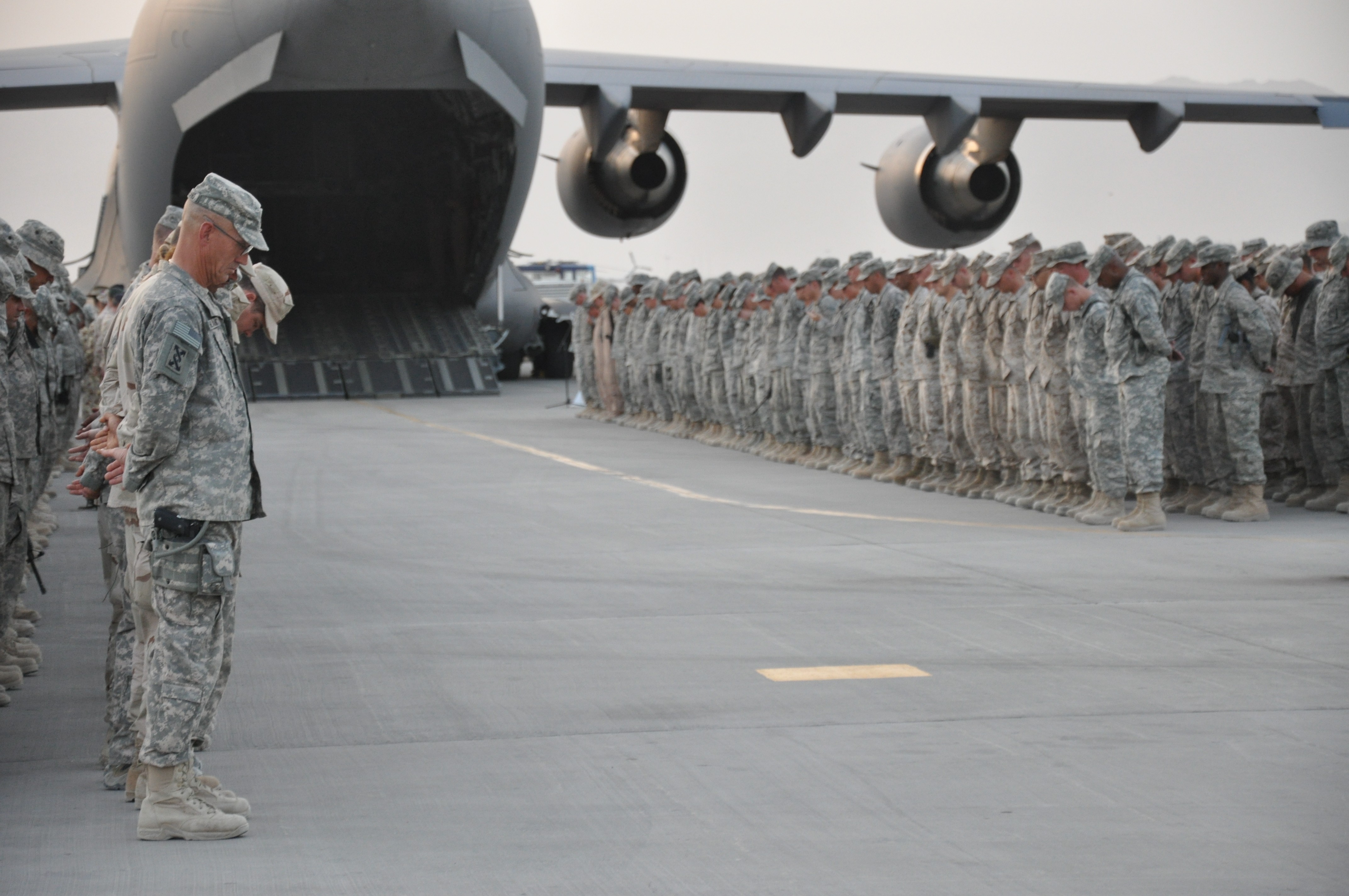KANDAHAR AIRFIELD, Afghanistan - The aircraft engines hummed as U.S. and coalition forces stood in two formations, shaping a path in between. The fallen hero lay in a flag-draped case at the walkway's beginning. Paying their last respects to the one who gave all, troops saluted this hero. Faces somber, the pallbearers, his former comrades, shouldered their heavy burden and slowly marched past the long rows of servicemembers to the waiting plane.
"The purpose of a ramp ceremony is to give a final farewell to our comrades, especially for the unit who's suffering the loss," said Staff Sgt. John A. Rosado, a U.S. Army reservist from Clermont, Fla. "It's to pay respect to the person who paid the ultimate sacrifice."
A Soldier since 1993 and a civilian Corrections Officer for the Federal Bureau of Prisons, Rosado has worked in mortuary affairs since 2000 and now fulfills his mission at Kandahar Airfield as the Joint Sustainment Command-Afghanistan mortuary affairs noncommissioned officer in charge.
"Our job is to make sure to expedite our fallen comrades back to loved ones in a timely manner," said Rosado.
There are only two mortuary affairs collection points for U.S. troops in Afghanistan. The KAF point, managed by the NATO Maintenance and Supply Association, serves Regional Commands South and West, while the collection point at Bagram Airfield serves Regional Commands North and East.
Rosado became a mortuary affairs specialist after a six to seven week course at Fort Lee, Va. During that course, Rosado worked at a morgue, took fingerprints of remains and assisted technicians in autopsies.
In Afghanistan, Rosado's duties relate to preparing the fallen hero for transfer to Dover Air Force Base, Del. At Dover AFB, the hero receives a dignified transfer of remains to family.
When Rosado receives notification of a fallen comrade, he first alerts personnel to standby while he collects information about the arrival of the remains.
"In a respectful manner, with the unit escorts, we'll unload the remains from the plane," said Rosado.
The mortuary affairs personnel and the unit escorts will proceed to the MACP.
At the MACP, the personnel first screen the remains for unexploded ordnances, ammunition and sensitive weapons, said Rosado.
"Once they're screened, they enter a holding area," said Rosado. "A chaplain will do a small, informal prayer over the remains with the unit representatives."
After the fallen troop's comrades leave, the MACP personnel remove personal effects from the remains. Dover AFB personnel will later cleanse the remains and conduct an autopsy. Once the belongings have been inventoried and paperwork completed, the remains will be stored in ice inside transfer cases placed in refrigerated vans.
Rosado then contacts the movement control team at the airfield to receive a transportation control number for the fallen. Upon receiving the TCNs, he scans the documents and sends them to the mobility section of JSC-A to book a flight.
"Coordination is made with the Theater Mortuary Affairs Collection Point and [Air Mobility Division/Tanker Airlift Control Center] to coordinate the flight for human remains to Dover AFB," said SFC Manuel Garces, a JSC-A Mobility NCO.
Rosado's final duty is the ramp ceremony, organized through the U.S. 649th Regional Support Group (Provisional).
Rosado and MACP personnel prepare by tying a U.S. flag over the transfer case.
"It's so when the pallbearers load the case on the plane, the flag is already folded properly," said Rosado.
They transport the flag-draped case to the flight line. After American and coalition servicemembers line up into formations, the mortuary affairs specialists bring the van forward to send the servicemember home.
"Not many people can [handle seeing] a deceased person, or the cause of death, in this state," said Rosado. "It's a privilege and an honor. It helps give the family closure."
Through his hard work and dedication as a mortuary affairs specialist, Rosado provides an important service for fallen heroes by facilitating their quick return back to the States and on to their families.


Social Sharing